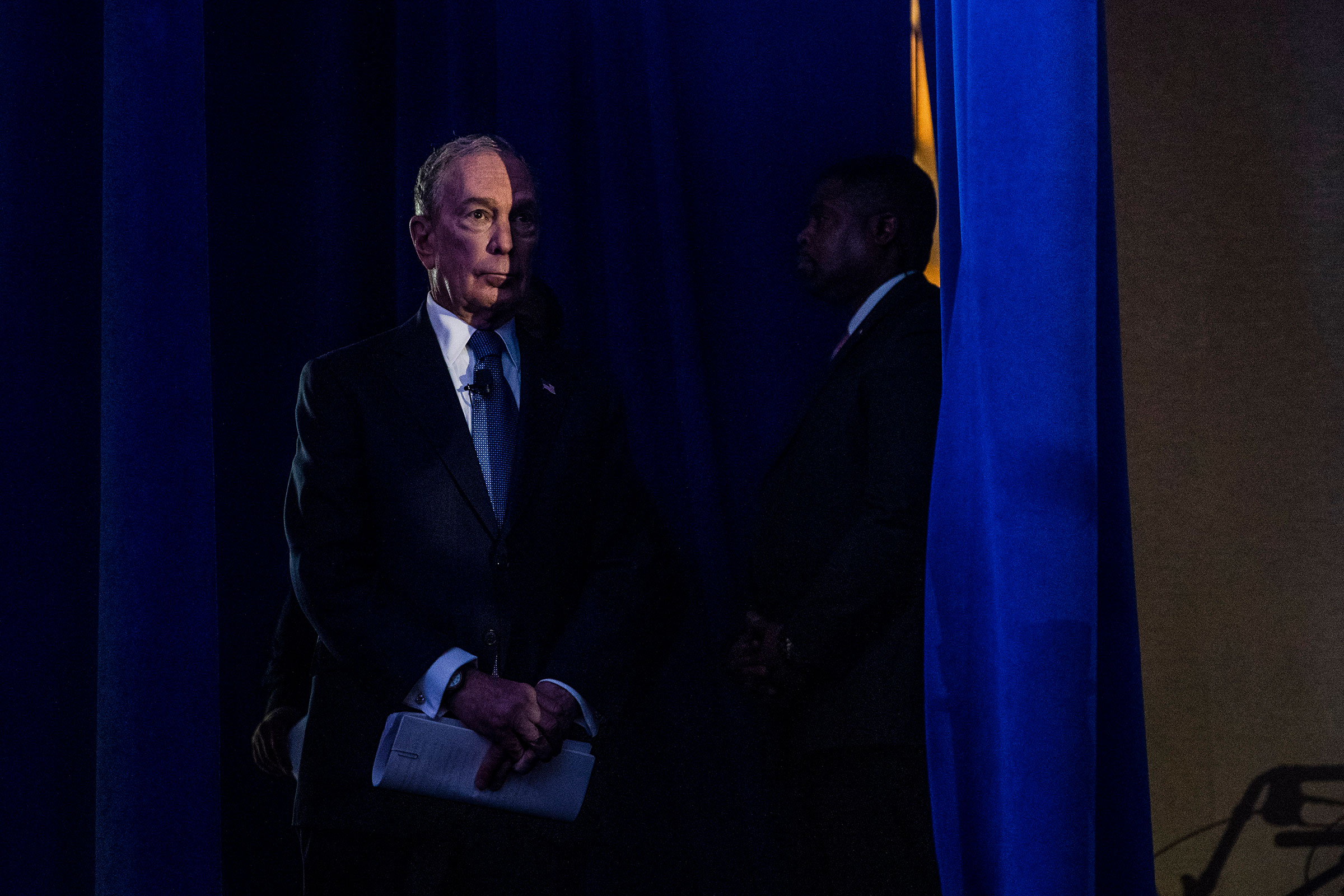
This article is part of the The DC Brief, TIME’s politics newsletter. Sign up here to get stories like this sent to your inbox every weekday.
Former New York City Mayor Mike Bloomberg is opening his deep pockets and shaking at least $100 million loose with a singular purpose: to deny President Donald Trump a victory in Florida on Election Day, now just seven weeks from tomorrow.
The bold spending, unprecedented in its single-state intensity, may still prove insufficient to calm the nerves of Democrats who worry that their nominee, former Vice President Joe Biden, is simply sucking air in the critical swing state. Democrats, including former rivals Bernie Sanders and Julián Castro, have spoken publicly about their fears that Biden is letting the race slip from his grasp in large part because of insufficient courtship of Latino and Hispanic voters, who comprise one-in-five of the state’s potential electorate.
That fear isn’t limited to the Sunshine State: Arizona, Colorado and Texas all have significant Latino populations that Biden needs to win. According to Pew research, an estimated 32 million Latinos could be eligible to vote this year, and Biden’s courtship of this crucial bloc appears to be coming up short. As this newsletter reported last week, some Latino leaders fear that Biden is taking them for granted.
Enter the media billionaire, nicknamed El Bloombito by New York bloggers for his hackneyed attempts as mayor to speak Spanish. Details were unclear, but Bloomberg advisers said the cash injection would be handled through Bloomberg’s existing super PAC, Independence USA, as well as other Democratic-leaning outside groups already working on voter turnout, voting rights and targeted outreach through Spanish-language media. The solution, however, may prove more elusive than Bloomberg’s botched Spanglish.
Florida’s politics are their own complicated mix of cultures that can’t be approached as a monolith. The state is home to conservative-minded Cubans, more liberal members of the Latino community, and a generational gap that splits households. The dynamics within the broader community are also shifting: the influx of Puerto Ricans post-Hurricane Maria swung the state’s vote in unexpected if not contradictory ways, as evidenced by the win of Sen. Rick Scott, atypical for Republicans in 2018. At least some Latino voters are listening to Republicans’ efforts to brand Democrats as socialist sympathizers, as evidenced in a pool report from Kamala Harris’ visit last week to Miami, where a pro-Trump protester greeted the Democratic V.P. pick as a communist and socialist: “Kamala Harris representa el comunismo y el socialismo.”
Then, there’s the absent ground game. Normally, by this point in a traditional campaign, campaign offices are aplenty — especially along the swingiest of swing regions, the I-4 Corridor from Tampa to Orlando to Daytona Beach. This year, Biden’s campaign has chosen not to engage in the door-to-door campaigning that these offices power through staff and volunteers, yet another reason some Democrats are nervous about the state of the race.
Bloomberg, who ran his own ill-fated campaign for the Democratic nomination and spent $1 billion to earn just 59 delegates, had pledged to pay for the mother of all super PACs. He transferred millions to the Democratic National Committee, spoke at Biden’s e-convention and still kept needling Trump. But the mega-checks were slow to arrive. Heading into Biden’s nominating convention, Democrats grumbled about his slow giving. Even after seeing his nine-figure outlay, there were still groans that he wasn’t looking beyond Florida’s borders.
Florida is crucial for a Trump win but Biden’s road back to the White House can get there without the state — especially with polls suggesting that the economy is a lesser concern to voters than leadership style, a capacity for compassion and understanding of the racial wounds in this country. In polling from Florida, Biden is running stronger than Hillary Clinton or Barack Obama among seniors and white voters, but is lagging them among Hispanic and Latino voters.
Nationally, not even the most optimistic Republican would argue that Trump can win a majority of Latino voters. But that’s not the campaign’s goal. As with Trump’s efforts to win over Black voters, the idea is to keep Biden from carrying the demographics with blowout margins, the same way George W. Bush increased his share of the Latino vote by 10 percentage points between 2000 and 2004.
As New York Mayor and as presidential hopeful, Bloomberg’s mangled Spanish was the source of endless mockery. Now, out of office, he’s trying again to reach these voters. This time, he’s wisely going to let others do the talking. His money has already said enough.
Make sense of what matters in Washington. Sign up for the daily D.C. Brief newsletter.
More Must-Reads from TIME
- Cybersecurity Experts Are Sounding the Alarm on DOGE
- Meet the 2025 Women of the Year
- The Harsh Truth About Disability Inclusion
- Why Do More Young Adults Have Cancer?
- Colman Domingo Leads With Radical Love
- How to Get Better at Doing Things Alone
- Michelle Zauner Stares Down the Darkness
Write to Philip Elliott at philip.elliott@time.com